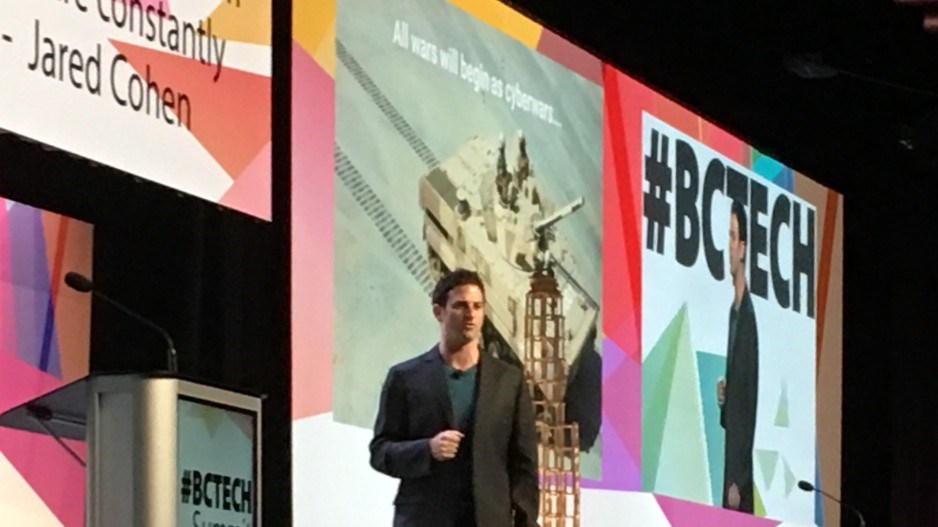When Jared Cohen and former Google CEO and executive chairman Eric Schmidt sat down to write The New Digital Age in 2013, the pair argued humans and computers in the future would have clearly delineated roles in society.
Humans would tackle everything dealing with judgement and emotion, while computers would handle the needle-in-a-haystack problems.
“So it turns out that we were really wrong,” Cohen, the CEO of tech incubator Jigsaw, told the audience at the B.C. Tech Summit on Tuesday (May 15) during his keynote address.
The problem was that the two authors failed to consider the sheer volume of data that’s come with the ubiquity of technology, said Cohen, whose incubator is owned by Google parent company Alphabet Inc. (Nasdaq: GOOGL).
And since then, the lines between the physical world and the digital world have become murkier.
It’s a development that’s pushed Cohen to think deeply about the intersection between technology and world affairs.
Jigsaw aims to use technology to make people safer from cyber threats, censorship and extremism.
And in his 20s the tech CEO began advising former secretary of state Condoleezza Rice before continuing on in that role in the next administration, serving as an adviser to former secretary of state Hillary Clinton.
“Despite everything we know about the advent of technology and what’s happened, we don’t spend enough time reflecting on the impact that it’s had on societies,” said Cohen, who has travelled to more than 100 countries, including North Korea and Iran, to observe the variety of ways technology is affecting people across the world.
Cohen said he views data as the most valuable man-made resource the world has ever seen.
“It fuels economies, it influences geopolitics, it shapes societies for good or for ill,” he said.
“And like natural resources, simply having a lot of it doesn’t necessarily make it meaningful.”
He said if actors don’t have the ability to make use of the data then, much like oil, it amounts to a “bunch of black liquid stuck in the ground that you can’t get out.”
Cohen emphasized during his address that the power of sheer power of data can be observed more and more frequently on the global stage.
Throughout the keynote, he made reference to the fake news phenomenon, how leaked emails influenced the 2016 U.S. presidential elections and the current conflict between Russia and Ukraine.
“I think we have to move beyond this notion that there’s such thing cyberspace or cyberterrorism,” he said.
“There’s an international system and it has a physical front and a digital front. And what happens in one domain impacts the other.”




